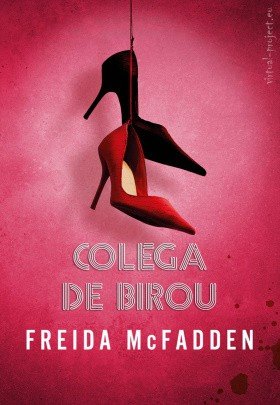She approaches the main house. Outside it, she takes a knee, balancing the pad on the other one. She sketches the house from memory, placing inside each room the guests she interviewed yesterday.
When she’s finished, she stands up and walks past the front entrance of the house.
Yesterday, she spent her day talking to the guests; it’s time now, thinks Judy, to talk to the people who serve them.
For the first time, she knocks at the kitchen door. A small woman in an apron answers, holding a floured rolling pin in her hands.
“Good morning,” says Judy. The woman wipes her hand on her apron slowly. Says nothing.
“Are you all right?” says Judy.
“Are you a police officer?” the woman asks.
“Investigator,” says Judy. “I’m Investigator Luptack.”
“But,” says the woman. “With the police?”
Judy nods.
The woman walks back toward a counter, sets the rolling pin down.
“Do you have a moment to talk?” says Judy.
Again, the glance around. “I do have a moment,” says the woman, lowly. “Only it has to be your idea to talk, not mine. And it can’t be in here.”
• • •
Judy leads her through the kitchen door. Stops near the side of the house.
“Keep going,” the woman whispers. “The windows are open.”
They walk twenty paces more, until they are right at the edge of the lake. Then Judy takes out her notepad.
Above them, the circling helicopter has begun making announcements over its loudspeaker: Barbara, your parents miss you. Barbara, move to a clearing. Barbara, get to high ground. Barbara, yell if you hear this. The sound makes her shiver.
The woman looks at her expectantly. “Aren’t you going to ask me questions?”
“Oh,” says Judy. “Name?”
“Jeannie Clute.”
“Date of birth?”
“June 12, 1947.”
“Occupation?”
This gives her pause. “Temporary cook, at the moment,” she says. “Prior to that, homemaker.”
Judy glances up.
“Do you have children?”
“Yes. Three. A fourth on the way.”
Judy glances down, briefly, at the woman’s still-flat stomach.
“A husband?”
“Yes.”
“What made you take this job?”
The woman turns her face away. Suddenly, tears come to her eyes and spill over. She swipes at them. Angry.
“Foolishness,” she says. “I was wrong to take this job.”
Judy pauses. A sensation is beginning in her lower belly that she’s never felt before: some feeling that one piece of a larger puzzle is about to fall into place.
“Why not?” she says.
“They’re bad people,” says Mrs. Clute.
“How so?”
“They let the wrong man take the blame when their son disappeared,” she said. “They let his name be ruined.”
She’s finished crying. A hard look has replaced her tears, and she looks into Judy’s eyes with conviction.

























